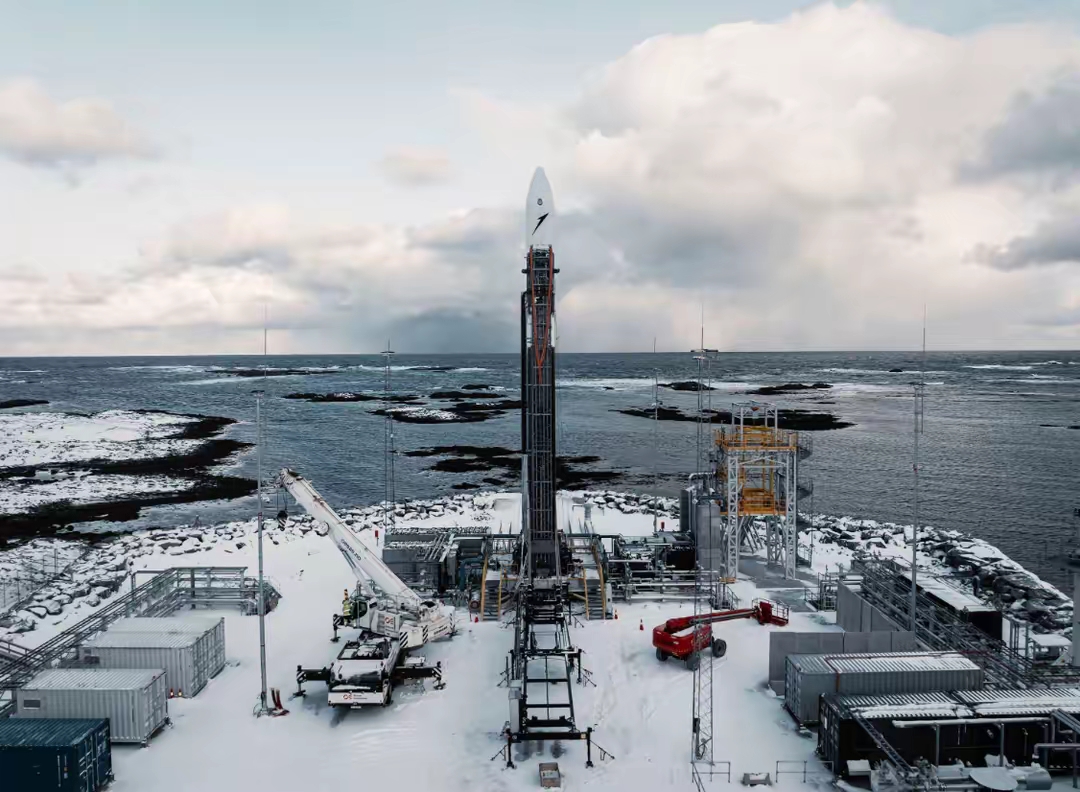
At 12:30 pm local time on March 30th, a "Spectrum" rocket carrying German commercial space hopes was ignited and launched from the Norwegian Aerospace Center on An Island. However, just 30 seconds later, the rocket suddenly tilted, fell to the ground, and exploded, with flames soaring into the sky.
From a technical perspective, this crash has exposed the complexity and high risk of commercial aerospace technology validation. The "Spectrum" rocket was developed by the German company Isar Aerospace Technology and is the first European carrier rocket to be launched on the European continent outside of Russia. It uses liquid oxygen and propane fuel, is about 28 meters high, and can send a payload of about 1 ton into low Earth orbit. According to public information, the vector control system of the rocket underwent excessive correction 18 seconds after takeoff. About 10 seconds later, the first stage engine stalled and the rocket lost power and began to fall. This indicates that the core technology systems of rockets, such as flight control and propulsion, still have serious deficiencies. In the field of aerospace, even the smallest technological flaws can be infinitely magnified in extreme environments, ultimately leading to mission failure.
This also reflects the gap between technological research and practical application. Despite conducting multiple ground tests during the development process, including a 30 second static ignition test of nine engines in the first stage of the rocket in February and upper stage testing in the third quarter of last year, the ground environment is vastly different from the actual space environment during launch. Rocket launches face complex operating conditions such as high overload, strong vibration, and extreme temperature changes, which are difficult to fully simulate on the ground. This also reminds all commercial aerospace companies that technology research and development should not only focus on theory and laboratory verification, but also fully consider various uncertain factors in actual launch scenarios.
As a star startup in German commercial aerospace, Isar Aerospace Technology was founded in 2018 and has raised over 400 million euros in funding to date, with investors including Porsche Holding, Volkswagen's largest shareholder. The influx of capital has provided impetus for the development of commercial aerospace on one hand, but on the other hand, it may also give rise to a mentality of rushing for success. Enterprises, with huge financial support, often expect to quickly achieve results to repay investors, which may lead to hasty launch attempts before the technology is fully mature. This failure has forced investors to re-examine the risk and return cycles of commercial aerospace projects, and future investments in this field may be more cautious. This is undoubtedly a huge challenge for commercial aerospace companies that rely on capital injections.
From the perspective of the European aerospace industry landscape, the crash of the "Spectrum" rocket has impacted the ambition of European domestic aerospace development. In recent years, Europe has placed greater emphasis on conducting space launches domestically, attempting to break away from its dependence on the French Guiana Space Center and the US Cape Canaveral Space Force Base. The launch of the "Spectrum" rocket is highly anticipated and seen as an important step in the rise of European commercial space. This failure has hindered the development of Europe's domestic space launch capabilities and further highlighted the gap between Europe and leading companies such as SpaceX in the global commercial space competition. However, failure may also become an opportunity for reflection and improvement in the European aerospace industry, prompting Europe to increase investment in aerospace technology research and development, strengthen international cooperation, integrate resources, improve the industrial chain, and enhance overall competitiveness.
From the perspective of global space development, the crash of the "Spectrum" rocket is just a setback in the long journey of space exploration. Looking back at the history of space exploration, SpaceX's Falcon 1 rocket also experienced multiple failures in its early days, with the first three launches ending in explosions and only achieving success in the fourth. Today, it has become a global leader in commercial space. This indicates that space exploration is a process of constantly exploring and advancing through failures, and each failure is a valuable opportunity to accumulate experience and improve technology. German and other countries' aerospace companies should learn from this incident, conduct in-depth analysis of the reasons for the failure, strengthen technological breakthroughs, improve quality management systems, and make full preparations for subsequent launch missions.
The crash of the German "Spectrum" rocket is a regrettable event, but it provides valuable lessons for the development of global commercial aerospace. Whether it's technology research and development, business operations, or industrial development, it requires continuous reflection, adjustment, and progress in the face of failure.

Since 2025, the conflict between the United States and Europe over the governance of the digital economy has continued to escalate.
Since 2025, the conflict between the United States and Euro…
When German Chancellor Mertz officially announced that he w…
On December 3rd local time, the copper price on the London …
The European Commission announced a new economic security s…
The European Commission announced a new economic security s…
For nearly a year, US President Donald Trump has launched a…